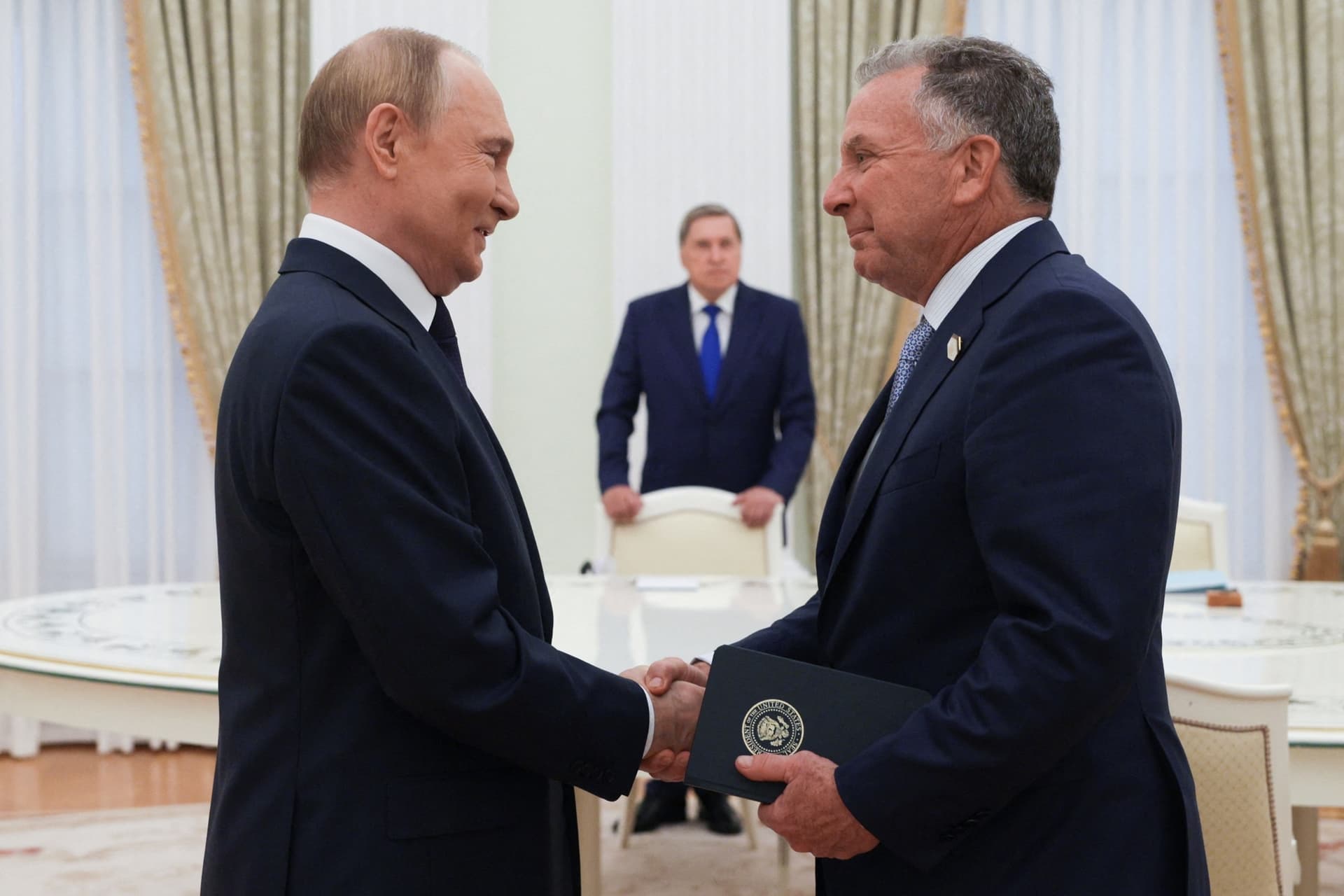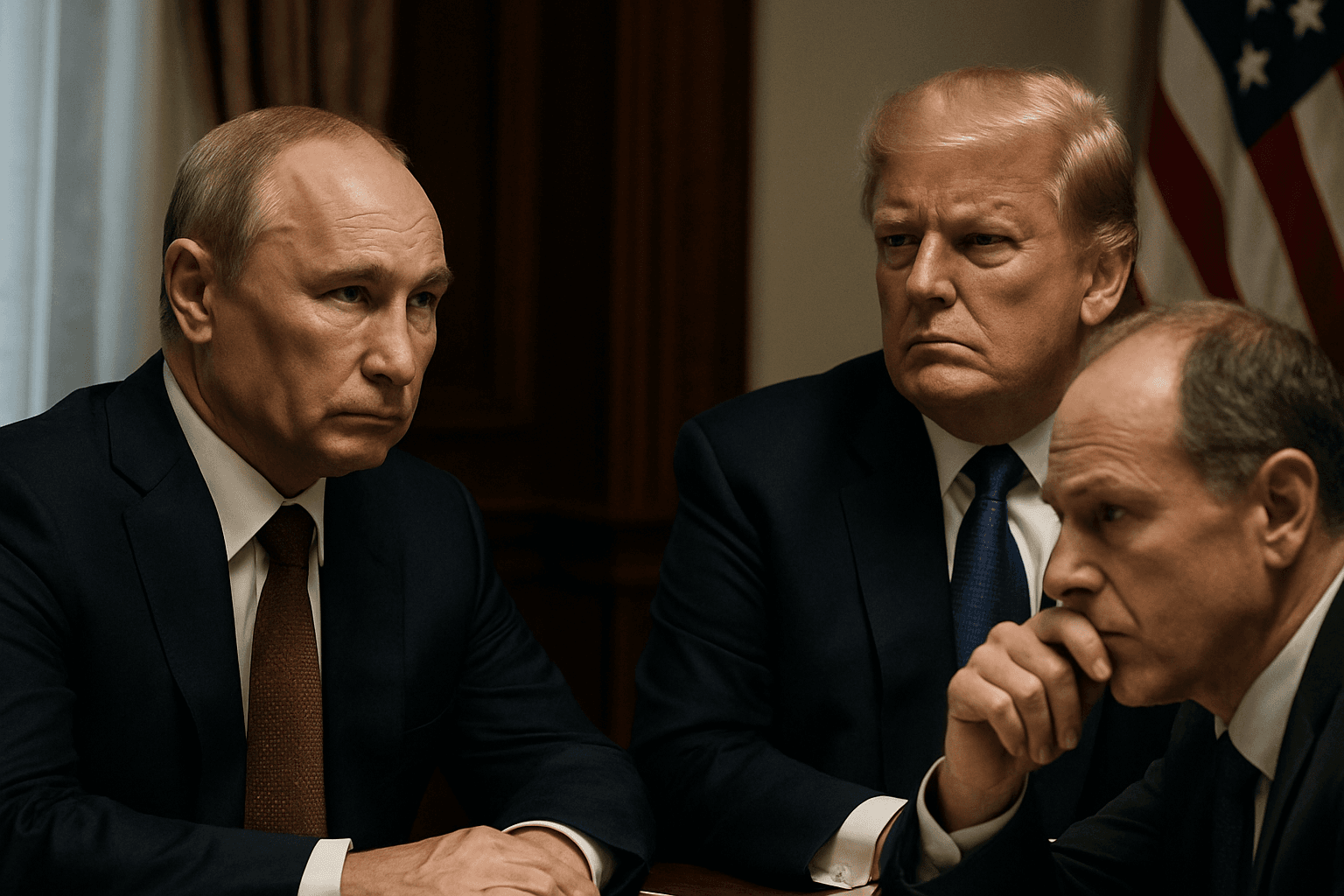Private Envoy Advised Kremlin on Pitch to Trump, Bloomberg Says
Bloomberg reported that U.S. presidential envoy Steve Witkoff coached a senior Kremlin aide in mid October on how to present a Ukraine settlement to President Trump, including recommending a Putin and Trump call before a planned White House meeting with Ukraine's president. The disclosure raises questions about the use of private envoys, the integrity of official diplomatic channels, and how the administration is shaping mediation efforts in the war in Ukraine.

Bloomberg reported that U.S. presidential envoy Steve Witkoff held a phone call in mid October with a senior Kremlin aide in which he advised Russian officials on how to frame a proposed Ukraine settlement for President Trump. According to the account, Witkoff urged Moscow to seek a call between Putin and President Trump before a planned White House meeting with Ukraine's president, and recommended using the Gaza agreement as a template for negotiated elements. He also counseled on messaging and sequencing intended to secure Trump’s buy in.
The reporting spotlights continuing tensions over who speaks for the United States on war termination and the growing role of private envoys in sensitive foreign policy negotiations. The involvement of an informal presidential envoy in coaching an adversary on outreach to the White House blurs the line between private diplomacy and official statecraft, complicating accountability for decisions that carry strategic weight for NATO partners and for Ukraine.
Institutionally the episode intersects with longstanding questions about the authority and oversight of back channel engagement. The State Department and the White House National Security Council traditionally coordinate communications with foreign governments to preserve unified policy and to manage risk. When private individuals occupy the channel, democratic oversight becomes more difficult. Members of Congress, who hold power of the purse and confirmation authority over senior foreign policy officials, are likely to press for clarity about who authorized the envoy, what instructions were given, and whether official policy was implicated.
The potential policy implications are significant. Advising Moscow to model a Ukraine deal on the Gaza agreement signals a willingness to entertain frameworks that may include territorial or governance trade offs that Ukraine and its Western supporters have long resisted. For Kyiv, the prospect of private intermediaries shaping proposals raises fears of sidelining Ukrainian priorities and of normalization of outcomes that could alter security arrangements in Europe. For allies in NATO and in the European Union, a U.S. posture that relies on informal channels rather than allied coordination could undercut coalition cohesion at a moment when synchronized deterrence remains a core strategic objective.

The political consequences at home are also consequential. Public awareness that private envoys are advising adversaries could influence voter perceptions of presidential conduct and of the administration’s management of national security. It may intensify demands from voters and civic groups for transparency and for congressional hearings to examine the extent of private influence on high stakes diplomacy.
The Bloomberg account underscores a wider pattern of informal diplomacy shaping official negotiations. As Washington navigates how to balance direct talks, allied consultations, and pressure on Russia, the episode invites scrutiny into the rules that govern who may represent American interests and how their work is supervised. The central test for institutions will be to reconcile the perceived need for creative diplomacy with constitutional and political demands for accountability and clear lines of authority.


